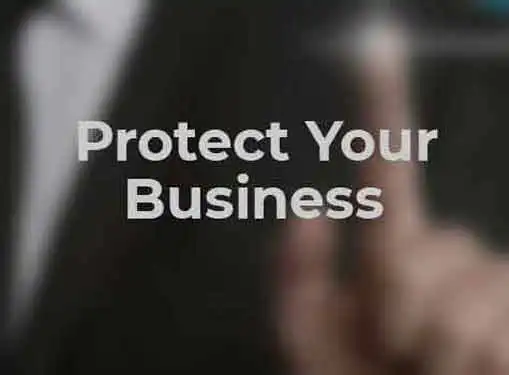Intellectual Property Basics
How Do I Protect My Business?
You've put everything you have into your business. But if you aren't careful, the time and effort you spent creating a first-rate business model could quickly evaporate.
Your company's value consists of much more than the appraised value of tangible assets like vehicles, equipment, and real estate.

There is also value in your business's identity - the branding, intellectual property, and other intangible assets that contribute to its bottom line success.
While many small business owners are proactive about protecting their tangible property and real estate, few know how to provide a similar level of protection for their companies' intangible property. Granted, the process of protecting intangible assets is more complicated and time-consuming than slapping a padlock on the front gate. But even so, the protection of intangible assets has become a critical business function, especially in today's information-rich business climate.
As a small business owner with limited resources, you may not be able to pursue the same level of intangible asset protection as a large corporation. Yet there are several steps you can take to protect your assets from unauthorized use and exploitation.
- Create a distinctive identity. It sounds simple, but one of the most effective strategies you can use to protect intangible assets like brands, logos, original works, and other material is to be as distinct as possible. Assets that are identified by generic phrasings like "Chicago Diaper Service" are more vulnerable than distinctive phrasings like "Dynamo Diaper".
- Pursue protective mechanisms. Nearly any intangible asset is capable of being secured by powerful legal mechanisms. Trademarks, copyrights, and patents are designed to provide exclusive rights to intangible assets.
- Publicize your ownership rights. By consistently publicizing your ownership stake in your intangible assets, you create a legal foundation in the event that your asset is contested in court. Although a statement of ownership alone won't create an airtight legal argument, it can be a consideration in legal proceedings.
- Require confidentiality agreements. Anyone who receives access to your company's proprietary information should be required to sign a confidentiality agreement that includes consequences for unauthorized disclosure to third parties.
- Aggressively monitor the marketplace. More often than not, the only way to detect the unauthorized use of your company's intangible assets is through an aggressive monitoring program that addresses both the online and offline use of your assets.
Share this article
Additional Resources for Entrepreneurs


Conversation Board
We greatly appreciate any advice you can provide on this topic. Please contribute your insights on this topic so others can benefit.